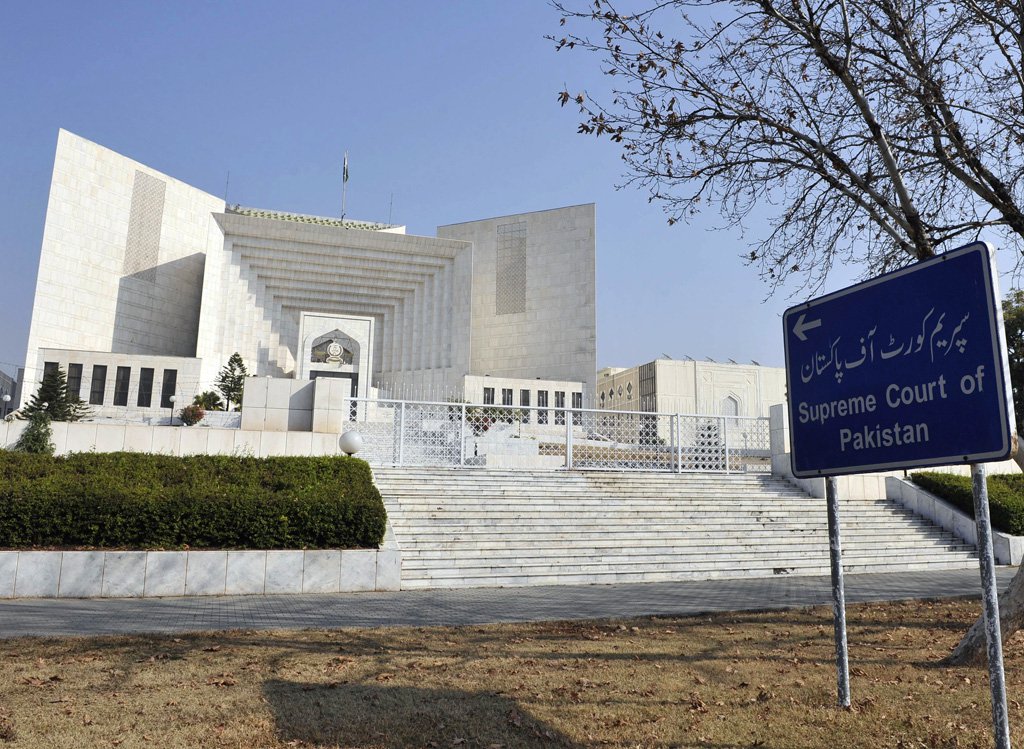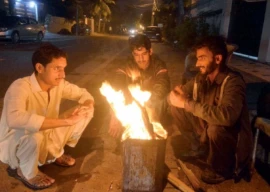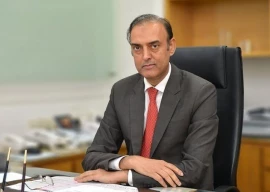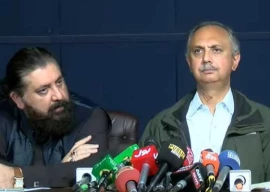
The Supreme Court has held that the first statement of accused before an investigating officer might be admissible, relevant and probative value in murder case.
“The benefit of the possibility of the existence of another version emerging out of the statement of the petitioner (accused) under section 342 CrPC and the first version of the accused before the Police Officer, if extended to the petitioner, brings his case under Section 302(c) instead of Section 302(b) PPC and in the circumstances of the case the petitioner (accused) is entitled to this benefit, said the ruling.
The judgement is authored by Justice Syed Mansoor Ali Shah and endorsed by Justice Manzoor Ahmad Malik. Third member of bench Justice Sayyad Mazahar Ali Akbar gave his own reasons in this case.
The judgment noted that after examining the evidence, if the court is of the opinion that there is reasonable possibility that the defence put forward by the accused might be true, then the prosecution case is viewed in the context of this reasonable possibility, entitling the accused to the benefit of the doubt.
“This principle has since then been consistently followed and applied by this Court and has received endorsement of larger benches of this Court in the cases of Ashiq Hussain and Abdul Haque,” the judgment said.
It added that the apex court in Ashiq Hussain case, said that it would be enough for the accused if, in the final analysis, the defence plea was substantiated to the extent of creating reasonable doubt in the credibility of the prosecution case.
In Abdul Haque case, the ruling said, the court held that it was a general principle in criminal jurisprudence that prosecution proved the case against the accused beyond doubt and “this burden does not shift from prosecution even if accused takes up any particular plea and fails in it”.
“If there is any room for benefit of doubt in the case of prosecution, the same will go to accused and not to prosecution,” it said. Thus Justice Shah held that reasonable possibility of the defence plea of being true could benefit the accused.
Regarding the statement of accused under section 342 CrPC, the judgment noted that the statement of the accused under section 342 CrPC was not evidence, but only a stand or version of the accused by way of an explanation when incriminating material against him had been brought to his notice.
The judgment noted that the statement was not made on oath, and could not be tested by cross-examination, and was made under the protection of immunity of the maker of the statement from punishment for making false statement.
“Such statement cannot be placed on the same footing as statements made by witness in court on oath, which are tested by cross-examination. Such statement thus does not strictly constitute evidence, but in view of the presumption of innocence in favour of the accused, the statement may provide valuable material to the courts for appraising the prosecution evidence in arriving at its findings.”
The court further noted that the version given in such statement, if found by the court to be reasonable and in accord with the probabilities of the established facts and circumstances, “the same may be accepted by the court even without requiring defence evidence, unless the version is falsified by the prosecution evidence”.
Facts of the case
In the case, the first information report by complainant Allah Ditta recorded that on May 3, 2009 around 7pm, Raza (petitioner) called his neighbour, Ramzan (deceased), to come out of his house. As soon as Ramzan came out in the street outside his house, the petitioner shot him with his 12 bore carbine in the belly.
Ramzan suffered several injuries all over the abdomen and the chest. He was rushed to the local hospital in Sheikhupura and then to hospital in Lahore but unfortunately he succumbed to his injuries on May 8, 2009.
Motive behind this gory incident, as reported, was the quarrel between the mother of the petitioner (accused) and the deceased. In this background the petitioner was sent up for trial. He was convicted for murder under section 302(b) PPC and sentenced to death by the trial court and upon appeal to the high court his conviction was maintained but his sentence was reduced to imprisonment for life, while the remaining sentence awarded by the trial court was kept intact in the high court judgment dated September 14, 2015.
The defence plea of the petitioner (accused) in the statement under section 342 of the Criminal Procedure Code, 1898 (CrPC) was that he acted under grave and sudden provocation as the deceased attempted to rape his sister and then abused and grappled with his mother.
This was also the first version taken by the petitioner (accused) before the investigating police Officer after his arrest. The apex court held that a case like this, where the accused in his first version had raised a plea of grave and sudden provocation, motive assumed crucial importance.
In view of the first defence plea, the court had set aside life imprisonment of the petitioner and convicted him under Section 302(c) PPC and sentenced to rigorous imprisonment for 10 years.
However, legal opinion was divided over law laid down by the SC in this case. Renowned criminal law expert Saiful Malook advocate, disagreeing with the judgment feared that it would open a very dangerous avenue for the murderers.
He said that according to the judgment if accused took first plea before the police that he killed on provocation and police accepted his version then accused be punished under section 302(c) instead of 302(b).
“This is against the law which says if accused takes any special plea he must prove by leading evidence,” he said, adding that in the present case the accused opted to be his own witness. So without any evidence how the court came to a conclusion, when even sister of the accused didn’t appear to support his version. If this law is followed then accused only need to bribe investigation officers and get a finding that accused plea is correct and get away with murder.”
However, another senior lawyer believed that proof of accused in this case was available on the file through statements of the prosecution witnesses, who admitted the version of the accused regarding provocation.
Secondly, he said that the first version of the accused before the police could not qualify to be sufficient but must be corroborated by other evidence on the file, which might even have been produced by the prosecution or complainant.
Thirdly, the lawyer said, the court treated such provocation as a mitigating circumstance and not as a complete defence warranting acquittal.







1730379446-0/WhatsApp-Image-2024-10-31-at-17-56-13-(1)1730379446-0-270x192.webp)









COMMENTS
Comments are moderated and generally will be posted if they are on-topic and not abusive.
For more information, please see our Comments FAQ